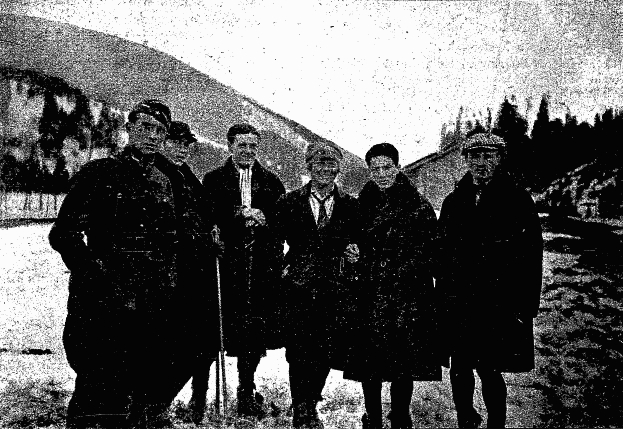Associated with picturesque Zakopane since childhood, Henryk Mückenbrunn was born into a Jewish family. He quickly made his mark in the Polish skiing, becoming one of its brightest stars.
He spent his childhood on the slopes of Zakopane, where he competed with the highlanders. This shaped not only his passion for skiing, but also his exceptional talent, which resulted in numerous successes in the future.
In the 1920s, Mückenbrunn dominated national skiing competitions, winning national championships in a variety of categories, including cross-country skiing, Nordic combined, ski jumping and cross-country skiing. His triumph at the Czechoslovakian championships in 1926 not only brought him international fame, but also underlined the growing importance of Polish skiing internationally.
Mückenbrunn was also a pioneer in ski tourism, exploring the Tatra slopes and making descents (e.g. from Skupniowy Uplaz or Karb Pass to Czarny Staw Gąsienicowy), which became permanently inscribed in the history of Polish skiing. His passion for mountains was not limited to winter activities; as a keen climber, he took every opportunity to explore the Tatra peaks in summer as well.
After his sporting career ended, Mückenbrunn did not abandon the world of skiing. A move to France opened up new opportunities for him. In Chamonix, one of the most prestigious ski resorts in the world, he quickly made a name for himself as an outstanding ski instructor and mountaineer. His collaboration with Emile Allais, the founding of a ski school and the authorship of a skiing manual are just some of his many achievements that contributed to the development of the sport.
During World War II, as a Jew, he hid from the Germans and helped transport refugees into Switzerland.
Unfortunately, Mückenbrunn’s life came to a tragic end in 1956. He and three other skiers froze to death in the mountains in a snowstorm during one of their expeditions.





